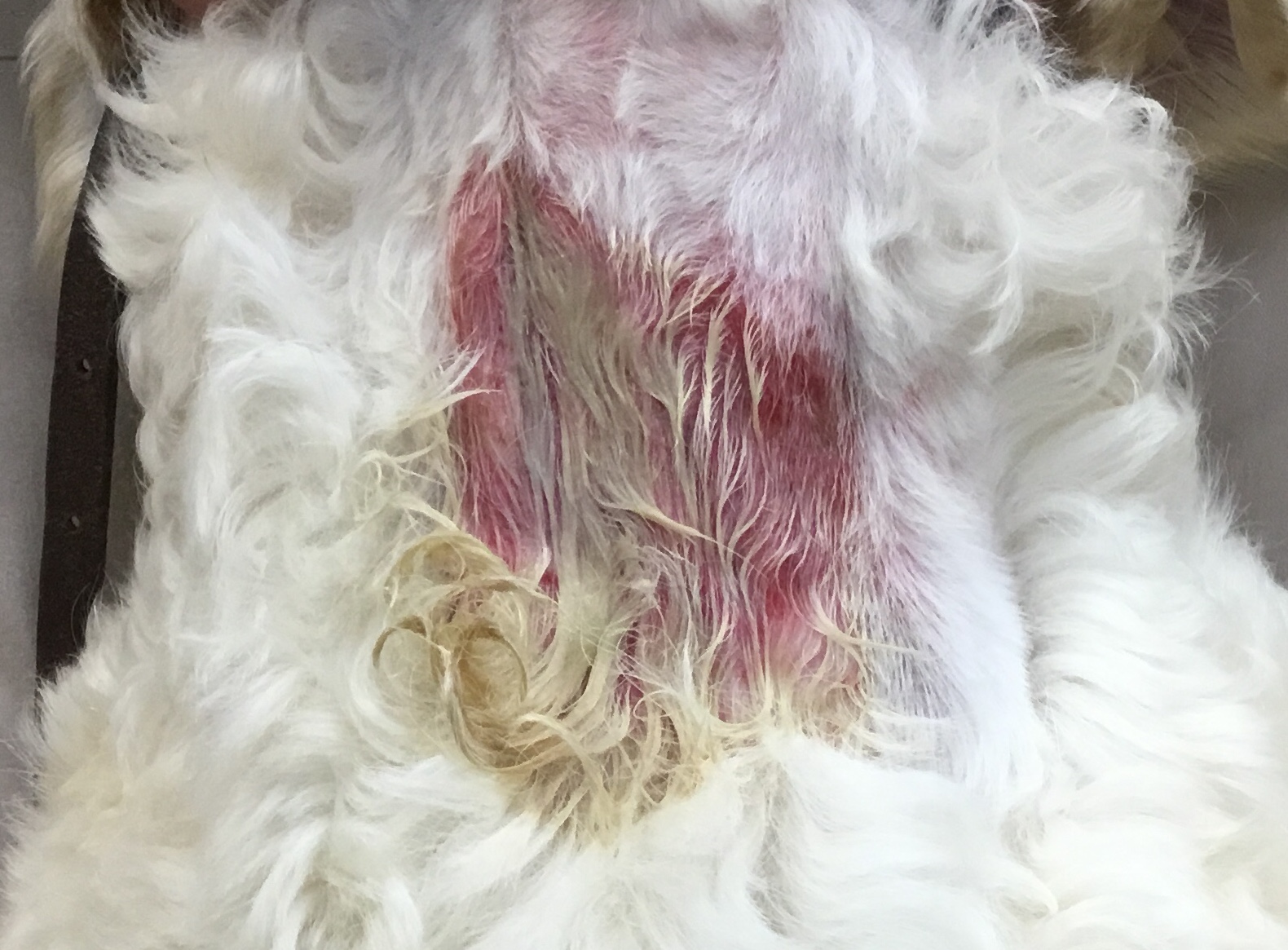
Hot Spots
The hot, humid summer months can bring fun in the sun for our pets, but they can also bring seasonal medical concerns. During this time of year, we see an increase in the number of pets suffering from hot spots. Hot spots are patches of red, moist, itchy, painful, and often hairless patches of skin. Hot spots (acute moist dermatitis) are skin infections affecting the superficial layer of skin. They generally heal rapidly and often heal without scarring. Hot spots can occur very fast and are suspected to be caused by self trauma. One example of self-trauma is a hot spot below an infected ear. The pet has scratched around the ear, damaging the protective layer, and allowing an infection to form.
While hot spots can occur at any time they are most commonly seen during the hot, moist summer months through early fall. Breeds most affected by hot spots are heavy coated, water loving breeds such as the Golden Retriever, Labrador Retriever, Newfoundland, Saint Bernard, and German Shepherd Dog.
Diagnosis is based on clinical signs and history described by owners. A thorough exam is done to rule out underlying causes such as skin parasites (fleas, ticks, etc.), allergies, or infections. We begin treatment right away by clipping hair both in and around the lesion. For large or especially painful regions sedation may be necessary. After the hair is removed the technicians will gently clean the lesion with wound cleanser.
Treatment at home depends on severity of the lesion/s and location. Elizabethan collars, (cone collars), are often sent home to prevent licking or chewing which can further traumatize the lesion. Your veterinarian may send home oral antibiotics, and/or steroids to treat the skin infection and inflammation. Cleaning of the lesions daily is recommended to speed the healing process – often followed by a topical medication such as a cream, ointment, or powder. It is important to wash your hands after cleaning and treating a hot spot to prevent the spread of bacteria.
Pets suffering from hot spots recover quickly with treatment. However relapse is common depending on the underlying cause. Hot spots are not a medical emergency, but they should be addressed by a veterinarian quickly. The lesions are painful and advance quickly with persistent scratching and /or chewing.





Recent Comments